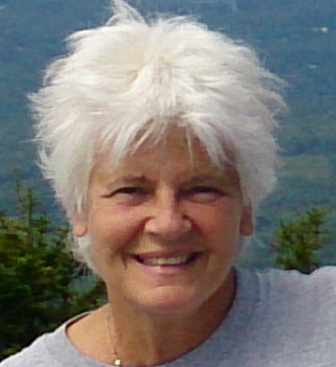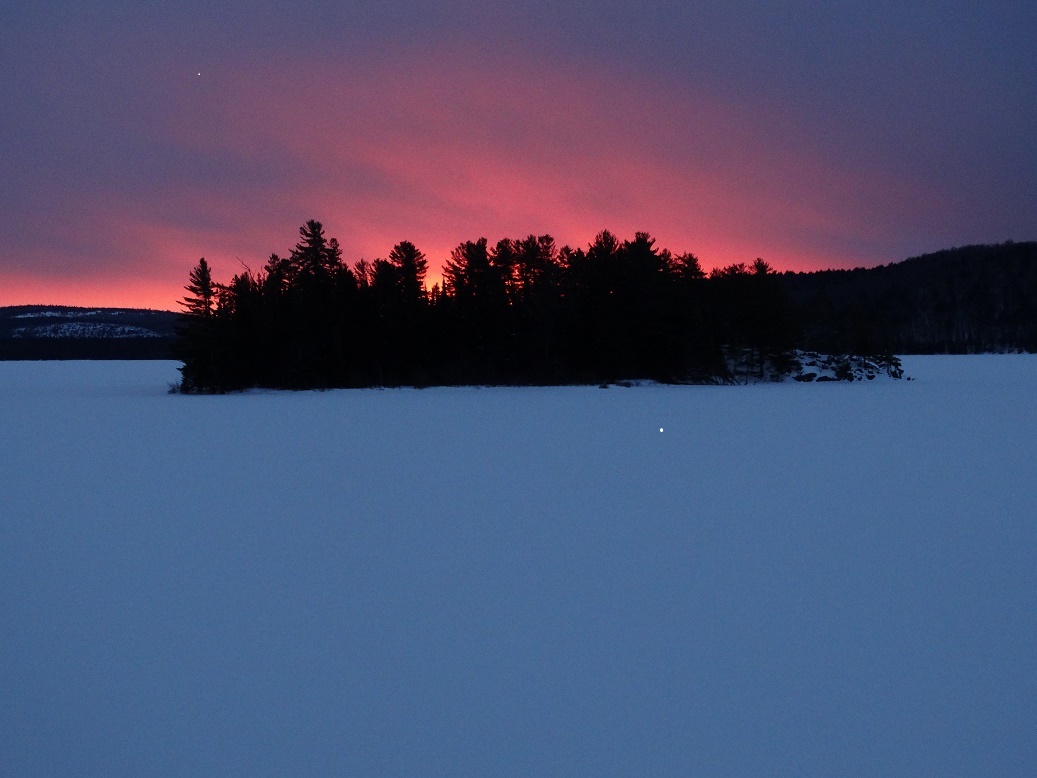
Conservation Biologist Christine Schadler
Howling from the Mountain: Conservation Biologist Christine Schadler has traveled to Ontario for a nine-day Wolf Trip.
The Wolf Trip was born 20 years ago when I was teaching at University of New Hampshire. The idea was to use the wolf as a natural vehicle to examine public attitudes toward wildlife, the ethics of predator management, the history of human-wildlife relationships and why we fear the “big” and the “bad” in nature.
Classroom dialogue, reading and writing papers are no substitute for learning in the Big Wild so part of the course was a unique field trip.
The journey from Durham to the wilds of Algonquin Provincial Park involved an 11-hour ride into the heart of Ontario. The park is refuge to a population of 250 genetically unique wolves. Because of my affiliation with UNH and my earlier research on wolf recovery, the Park officials offered the Wildlife Research Station (WRS) for our stay.
The WRS is located deep within the park in an area off limits to other park visitors. Since the early 20th century, scientists from all over the world have used the WRS as base camp for research ranging from forest and soil science to every manner of wildlife biology. It has always been an honor to bunk where some of the world’s finest scientists have called their home away from home.
On the first Wolf Trip, I drive the 11 hours and the well-rested students can’t wait to find wolves. So off we go, down to Lake Sassajewun, out onto the ice and regard the two points of land to our left and right as a “safe spot” on the lake from which to howl.
One of the boys released a well-rehearsed and chesty howl and not 4 seconds into his call, a single wolf, perhaps 75 feet away on one of the two points of land, responded. The group gasp made me smile but then it got better. Right after the single wolf response, the rest of the pack, located on the other point of land behind us responded! There we were, caught in the open on the lake right in the middle of a group howl.
This was a once-in-a-lifetime experience for all of us. In over 20 years of leading groups to APP, unforgettable moments tracking, watching and howling for the wolves of APP provide resilient memories. There is nothing in the world like walking down a woodland trail with no apparent wolf sign only to see that on the return trip, wolves, hiding just off the trail, had tracked us and veered off when they sensed our return.
Today the Wolf Trip is open to any interested adult – with or without tracking experience or knowledge of wolf ecology. All that is required is a passion for learning and an appreciation for the Wild. This year’s crew ranges from experienced tracker, adventurous fox hunter and world travelers, novice wildlife enthusiasts and an artist and musician. And me, Chris Schadler, contributor to InDepthNH.org.
Conservation Biologist Christine Schadler explores her passion for coyotes and wildlife and how people and animals share turf in the Granite State in her InDepthNH.org column Howling from the Mountain. She is the representative for Project Coyote in New Hampshire and Vermont, and a science adviser to the Northeast Wolf Coalition. She divides her time between teaching and working on her book “Becoming Wolf.” Between presentations on coyotes and wolves, she can be found at camp in northern New Hampshire researching coyote feeding patterns or leading trips into Ontario to track wolves.






